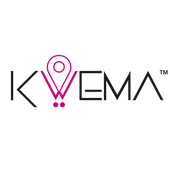Effective violence prevention programs start with addressing employee reports which will only happen effectively when workers have the confidence that their reports will be taken seriously and anonymously. Therefore, the first step to improve nurses' mental health is knowing their pain points!
Setting a hotline where employees can report their concerns in anonymity or during training, giving examples of cases that nurses might want to report and explaining the importance of doing it are great examples of how management plays an important role when it comes to encouraging employees to report.

Lack of reporting: a hurdle to tackle
Those working to solve the problem may not have a clear picture of what's actually happening due to the lack of reporting.
The main reasons why nurses might not be reporting violent incidents are:
- Fear of retaliation.
- Lack of clear reporting methods
- Belief that there will be no continuity to their report.
So now, how to report workplace violence?
The ANA brought a tool that promotes reporting of workplace violence. It's called STOP WPV, and it stand for:
- Situation: Describe what happened.
- Type: Was the abuse or threat verbal, a physical assault, or were any weapons used?
- Observers: Make a list of any witnesses to the incident
- People: Make a list of everyone involved in the incident.
- Where and When did the incident occur?
- Preceding Factors: Describe the events leading up to the incident.
- Verify: Note any injuries sustained, physical or emotional.
What else can be done to help traumatized staff?
Other actions can be taken into consideration in order to increase reporting. Here are some examples:
- Consistent and empathetic communication standards.
- Employee assistance programs.
- Peer support groups.
- Critical incidents stress debriefing teams.
- Crime scene clean-up resources
- Robust coverage for mental health services.

Last but not least, remember that there are always hotlines available to use in cases of emergency such as:
- 988 suicide and crisis lifeline
- National Alliance on Mental Illness (NAMI) HelpLine: 1-800-950-NAMI, or text “HELPLINE” to 62640.
- Emotional PPE Project (offers free services to healthcare workers in need of mental health support)
- Crisis text line (provides support to people experiencing a crisis)
Kwema will always promote a safety culture among hospital settings and look forward to safer workplaces!
